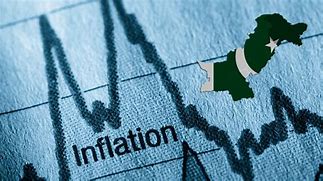Islamabad, Dec 27: Inflation is an economic reality that affects people across the globe, and Pakistan is no exception. The rising cost of goods and services influences everyday spending habits, reshaping the way households allocate their budgets.
Rising Prices: A Strain on Household Budgets
Inflation leads to increased prices for essential commodities, including food, utilities, and transportation. Households in Pakistan face a tough challenge in balancing their expenses, as salaries often do not rise proportionately to inflation rates.

- Food and Grocery Costs: The cost of staples like wheat, rice, and vegetables has skyrocketed, leading families to prioritize essential items over luxury foods.
- Utility Bills: Rising electricity and gas tariffs further strain household budgets, compelling many to conserve energy.
- Transportation: With fuel prices surging, commuting becomes a significant expense, prompting people to explore carpooling or public transport.
Shift in Spending Priorities
As inflation bites deeper, spending priorities have shifted drastically. Families now focus on survival and saving for emergencies.
Key Trends:
- Reduced Entertainment Spending: Dining out, movies, and vacations are often the first to be cut.
- Clothing and Non-Essential Purchases: Shopping for new clothes and accessories has taken a backseat to necessities.
- Health and Education: Many families are reallocating budgets to ensure their children’s education and access to healthcare remain unaffected.
Coping Mechanisms
To mitigate the effects of inflation, Pakistani households are adopting the following strategies:
- Bulk Buying: Stocking up on non-perishable items during sales.
- Budgeting: Creating detailed budgets to track expenses.
- Side Hustles: Engaging in freelancing or part-time jobs to supplement income.
- Investments: Exploring options like gold or fixed deposits to hedge against inflation.
- The Role of Government and Policy
Economic policies play a critical role in curbing inflation. The government needs to focus on stabilizing currency, controlling imports, and incentivizing local production to address the root causes of inflation. Subsidies on essential goods can also provide immediate relief to struggling households.
Conclusion
Inflation has undoubtedly reshaped everyday spending habits in Pakistan, forcing families to adopt frugal practices and focus on survival. While personal coping strategies help to some extent, long-term solutions require a collective effort from policymakers, businesses, and the public.
By addressing inflation through robust economic policies and promoting financial literacy, Pakistan can create a more stable economic environment for its citizens









